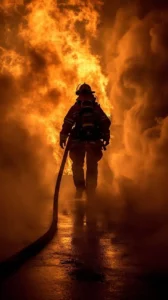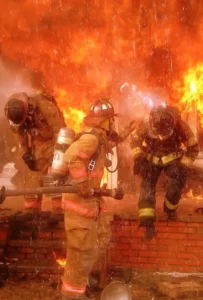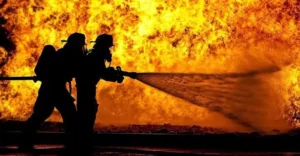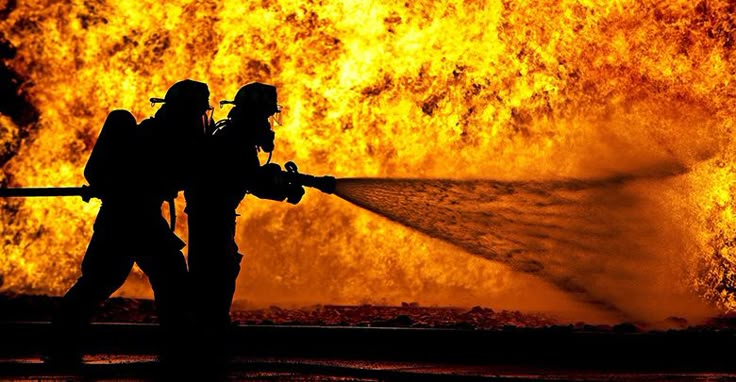The fire service is renowned for its bravery, sacrifice and unwavering commitment to protecting lives and property.
However, behind the heroism lies a sobering truth—a rising concern that has silently infiltrated fire departments across the nation: PTSd and addiction.
Firefighters face a myriad of challenges that can contribute to the development of addiction. The physically demanding nature of the job, exposure to traumatic incidents and high-stress environments can take a toll on mental health and well-being. The very qualities that make firefighters exceptional—courage, resilience and camaraderie—can also make it difficult for them to seek help or admit to struggling with addiction.
Recognizing that addiction is a complex illness rather than a moral failing or weakness is vital. Substance abuse can be triggered by various factors, including stress, trauma and the desire to cope with emotional pain. In the fire service, the culture of self-reliance and the “tough it out” mentality can intensify the problem, hindering individuals from seeking the help they desperately need.
“My father always told me that I had a servant’s heart, that no matter what, I was the one who had to make any situation better,” recalls Kenzie*, a 20-year veteran of the Fire and EMT life of service. “It was my job to walk away from a call and make certain that it was better than when I got there – and I was proud of that.”
Kenzie was exposed to unimaginable scenes of pain and suffering in his job over more than two decades as a firefighter. While the choice to become a firefighter often stems from a calling to help others, being constantly exposed to death, injury and suffering comes with a cost.

Snowballing stressors include the physical toll on the body, long working hours, work-related sleep disturbance and an inability to attend to daily family life can all lead to a dependency on substances, anxiety and suicide.
“The worst part is when you see an infant or a child die,” Kenzie recalls. “Seeing their family’s pain – the fact that you couldn’t save that particular life – the fact that you couldn’t do the ONE job you were made to do.”
Exposure to tragic scenes is a routine part of the job of a firefighter. Often, these men and women are re-exposed to these traumatic experiences through stories in the media or through videos and other posts by bystanders on social media. “You see it on all the local news, or on your social timelines,” states Kenzie. Images of tragedy become all too common with the frequency of news sources – reports highlight the devastation, loss and oftentimes death; but what the public doesn’t see, is the suffering of the firefighters who risk their lives despite the unforeseeable outcomes of each call. And though firefighters are primarily recognized for responding to fires, they’re also often among the first to arrive at all disasters and accidents.
“I remember one call we received for a fire,” recalls Kenzie. “It sounded like a routine structure fire, in an area of town that was known to be susceptible for ‘accidents. When we arrived, it was immediately clear that this was anything but routine. People were screaming; half our team was trying to keep the scene secure from every onlooker trying to be the next cell phone journalist, while the rest of us fought to put out the fire that had erupted into an inferno.”
After what seemed like hours fighting the flames, Kenzie was finally able to step back and breathe – staring at was once a home, he only saw soaked ashes of wood and debris. “The woman sobbing on the street watched as her entire life burned to the ground – she clearly couldn’t afford to live anywhere else, and the one place she felt safe was now gone.”
The life of a firefighter requires a frequent and immediate switch from laid-back life at the station to racing to unimaginable scenes that could involve anything from a light car accident to horrible car crashes, where first responders must pull people or bodies from crushed or burning cars.
PTSd is a condition caused by exposure to traumatic experiences. More often, people relate the trauma of PTSd to the context of war. While combat veterans often return to civilian life after deployment, the job of firefighters, police officers and emergency medical services workers involves regular, routine exposure to all types of traumas, for years and decades of their careers.

Throughout the country, firehouses, hospitals and police stations are riddled with first responders suffering with PTSd. For many, these are normal reactions to an abnormal circumstance; but for first responders who work in a hero culture, broken bones and scars are considered battle wounds, while mental injuries are a sign of weakness. These expectations are part of the lethal equation that drive first responders, suffering with PTSd and Substance Abuse Disorders (SUD) to their darkest times.
“First responders rush into burning fires or deal with the most catastrophic scenes — that’s their job, it’s what they’re trained to do,” stated Tom Spooner, Co-Founder of Warriors Heart- a private treatment facility providing care for addiction, chemical dependency and PTSd for active military, veterans, law enforcement and first responders. “We expect a level of super-human when we see a hero in uniform – inside though, they’re mortal. They are continually face with trauma, while being expected to ‘suck it up,’ or ‘push it down and carry on.’”
The rigors of the job contribute to increased cases of substance abuse. Drugs used as a coping mechanism often include marijuana, benzodiazepines and methamphetamine, with the most popular drugs of abuse being alcohol and opioids. “As a first responder, we see these horrific images first-hand,” Kenzie explained. “The aftermath is where you see peers withdraw. For me, alcohol was my escape, numbing and silencing the details that played in my head.”
Warriors Heart recognizes and understands the unique demands of first responders and works to successfully navigate healing and recovery while in the company of people who personally understand individual experiences. “Law enforcement, fire rescue and first responder jobs require you to be combat-ready, while maintaining the capacity to serve as a counselor, priest, lawyer or social worker all at once,” stated Spooner. “These heroes are often unwilling to seek help, fearing it will jeopardize their jobs or make them look weak. Or even deeper, many of the treatment programs or groups put them in the company of others who they may have dealt with in the past; putting them in an unsafe environment. There needs to be a cultural shift to provide these warriors with the support they deserve, without the fear of appearing weak.”
It’s important for first responders to remember that it’s normal to have a mental and emotional response to tragedies. Treatment is a viable option for first responders experiencing addiction and PTSd. Treatment centers across the country, like Warriors Heart, offer comprehensive services catering to the specific needs of first responders; providing various levels of care, including inpatient and outpatient treatment and support groups.
At Warriors Heart, heroes in every walk of life are welcome, offering a variety of treatment for those undergoing the damaging effects of PTSd as well as chemical dependency. For those who have fought battles to defend our country and our citizens, fighting the battle against addiction and depression doesn’t need to be done alone.
Call us now or contact us online to take the first step toward recovery.

If you or a warrior need help with addiction, PTS or co-occurring issues, please contact Warriors Heart’s 24-hour hotline (888-440-7107) answered by warriors and/or visit https://www.warriorsheart.com.
Call 24/7 @ 1 844-958-1183 or visit the link below.
https://www.warriorsheart.com/contact-us/














